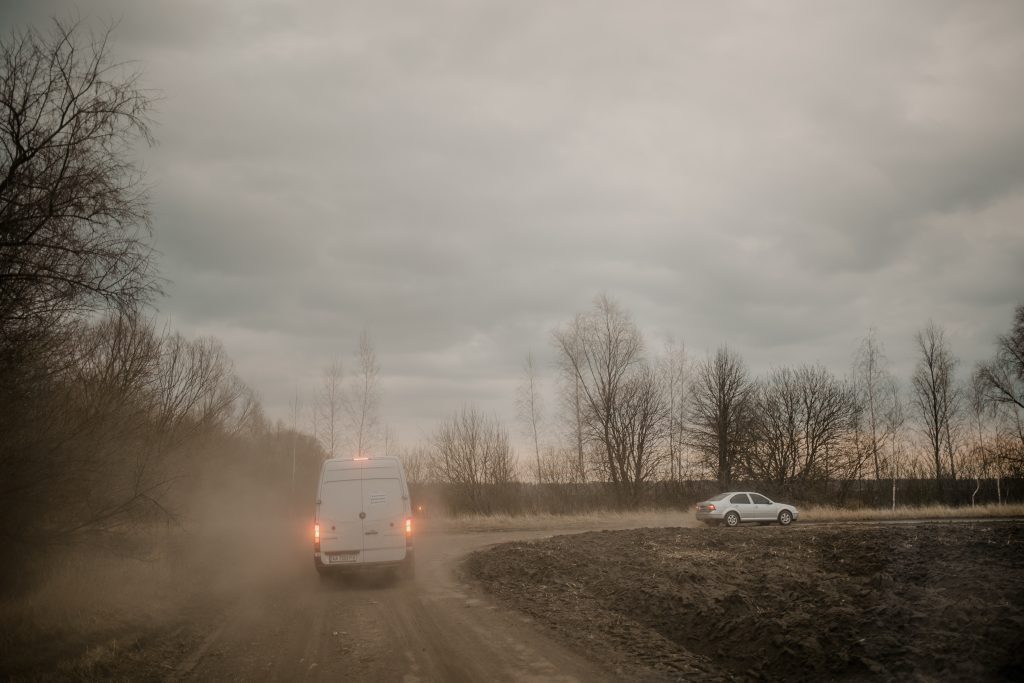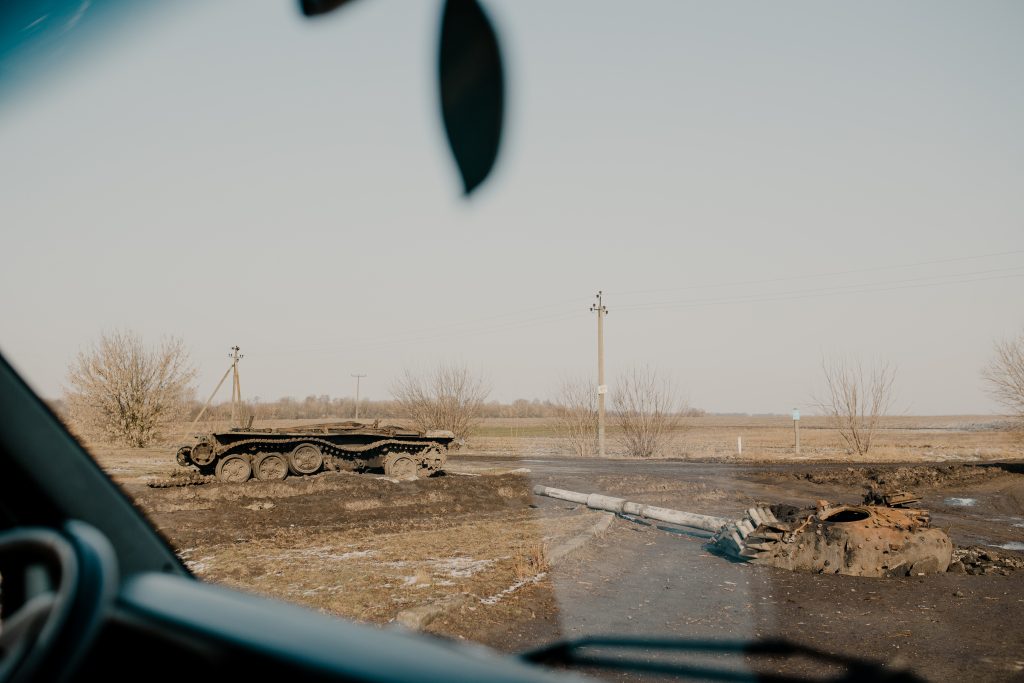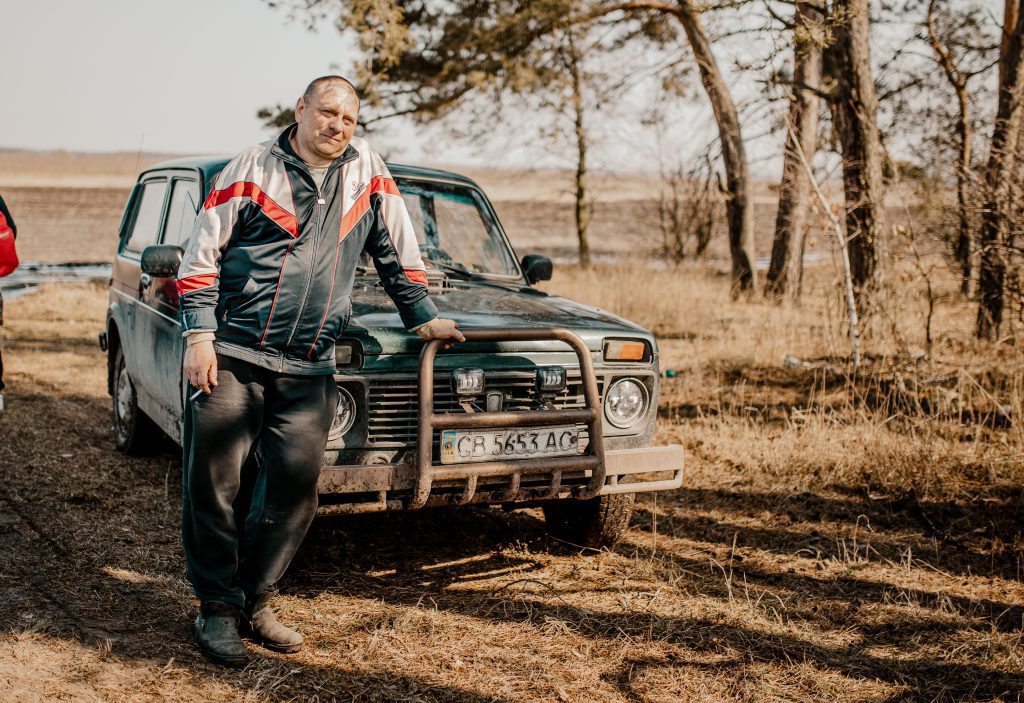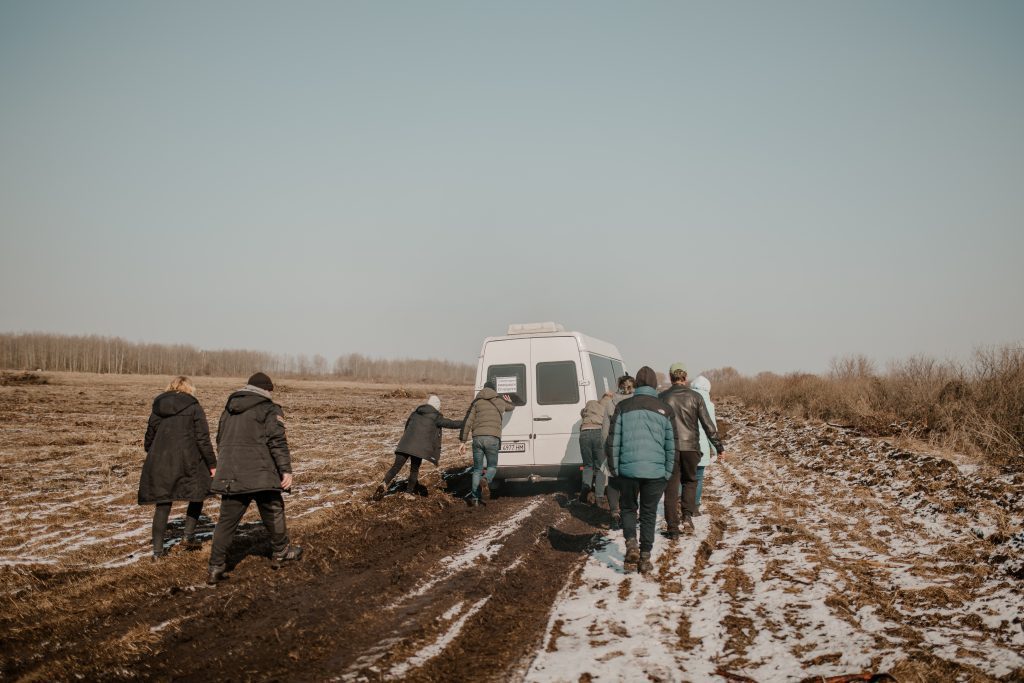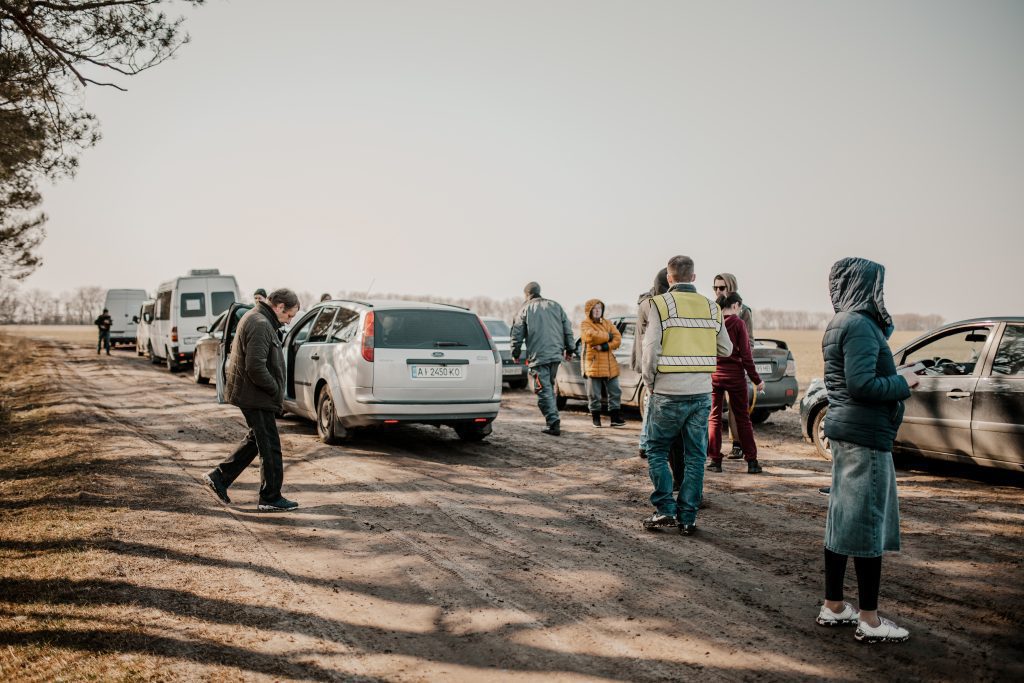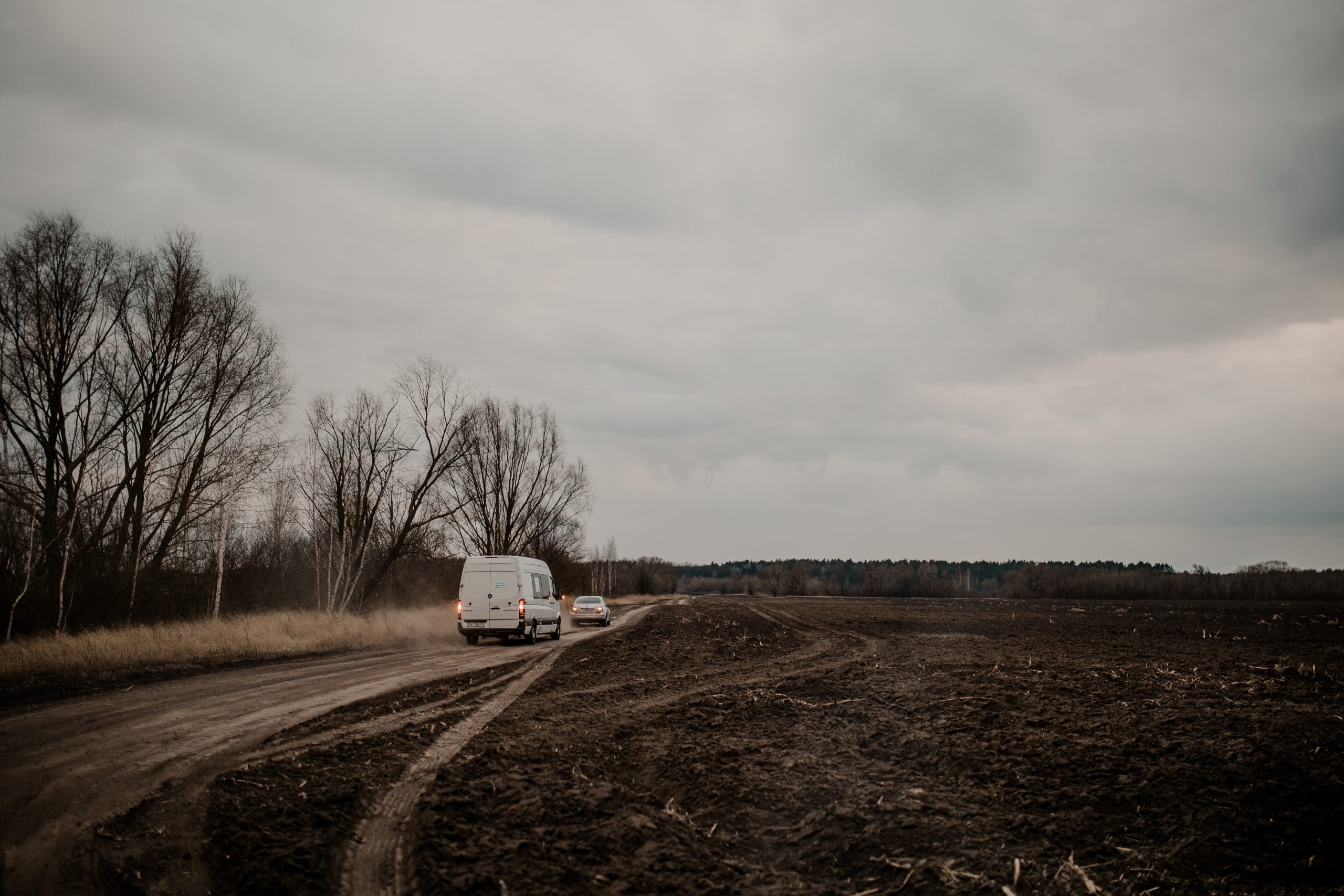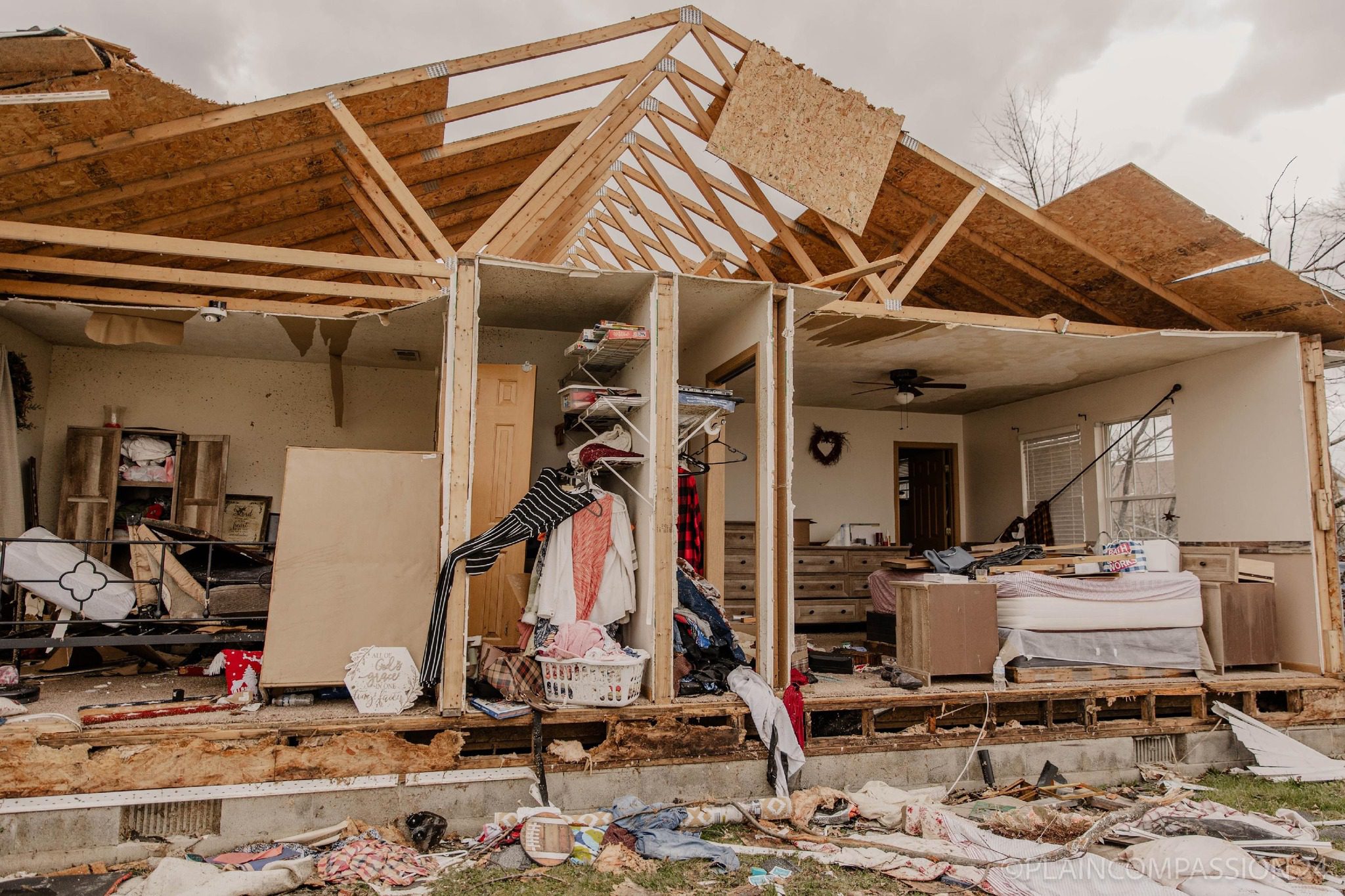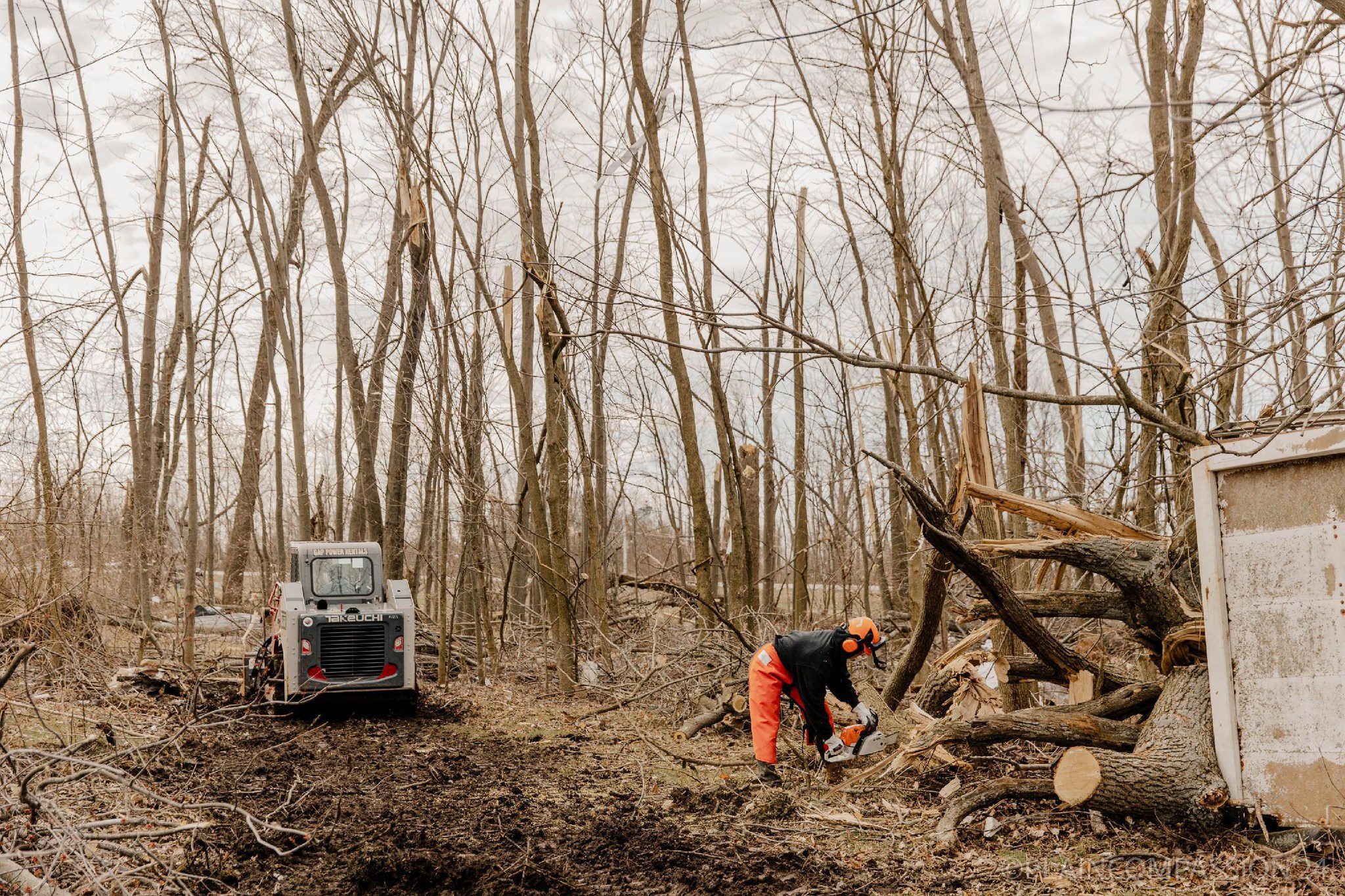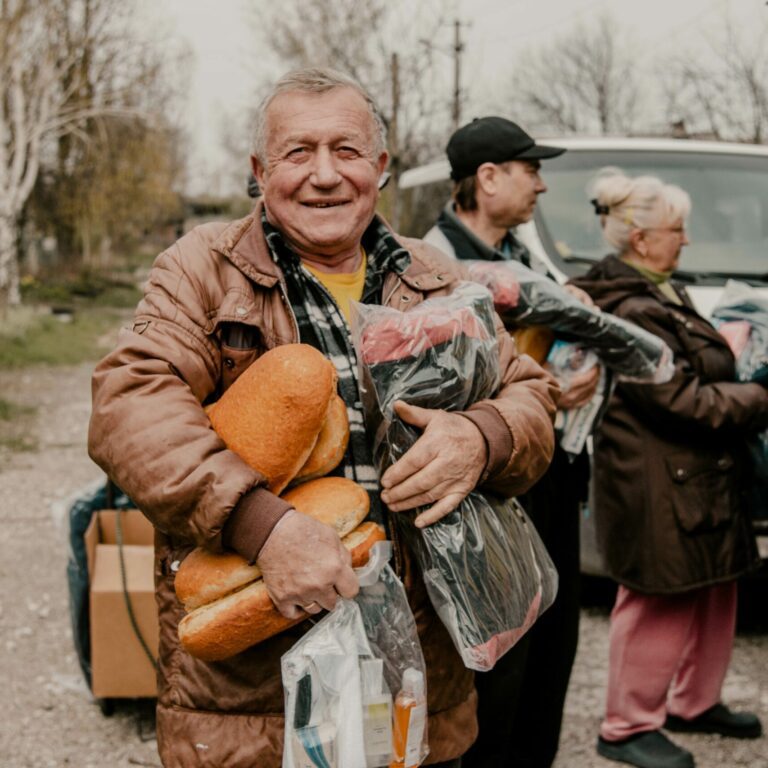This story is by one of our contacts in Ukraine, who helps us connect with the people that need to be evacuated.
By Victoria.
This story starts, like so many others with a cry for help. But no, don’t think this is a sad story. That’s not how this story ends. It starts, however, with a cry for help. Two women, and a child, deep inside enemy-held territory in eastern Ukraine. Grandma Olga (not her real name), her daughter, and her grandson. A tiny village, a name you’ll never see on TV, the kind of place where time passes slowly and summer evenings feel a little bit like heaven. The kind of place that turned into hell overnight.
A woman in western Europe with relatives stuck in a warzone, a desperate call across continents: “Can you help”? The more I listened, the more I was convinced I could not. It was an impossible case, but everything felt impossible in those early days of war. And she was desperate, the little boy only a few weeks older than my son. The truth is I was crazy to even take it on. But the woman who needed the rescue had the same name as my grandma, and somehow that felt like enough. And so, it was Grandma Olga who started it all.
We call ourselves handlers. My team is four women, two with decades of experience and two with native language skills (I am the second). We are volunteers. We reach out to the extraction targets, establish contact. Build trust and get them ready to go. But our most important job is to “shop around the case.” We approach rescue teams, mostly American volunteers in Ukraine many of whom are affiliated with religious organizations or are vets. We ask, beg, cajole, sometimes bribe, and yes even flirt (ok that’s mostly me) to try to get our targets extracted. That last one rarely works, but I like to leave no stone unturned. There are hundreds of thousands of people who need help, and limited resources. It’s our job to make sure our people are on the radar.
And so, we spend weeks begging, cajoling, and yes even flirting. We checked in on Olga and her daughter and grandson every day. “Sorry girls, can’t do it.” “We are working on it – no opening.” For weeks, we heard the same answer over and over again. All this, as Olga was running out of heart meds. As the little boy, the one who should have been in seventh grade like my son, the one who probably played soccer and took too many cookies when nobody was looking, as he was hiding from Russian tanks. My heart broke for that little boy. My heart broke every day.
Until one day… I told you this is not a sad story. Until one day… someone said yes. You ever watched a good action flick? The guys who rescue civilians in movies, they are ripped and gunned, they curse and smolder, and let’s be honest ladies, they are as undatable as they are desirable. Yes, those guys? Picturing them now? Good, now picture the exact opposite. Imagine a team made of young Christian missionaries, in plain white vans, completely unarmed. That was the team that said yes.
All they asked us for was to pray. And I did, dutifully, to a God I mostly don’t believe, because hey it couldn’t possibly hurt, right? We send them the last intelligence briefing and tried to get as much info on the area as we could. And then we waited.
Driving into hotly contested territory in Eastern Ukraine is not something you should try at home. And so the 3 white vans loaded with food and medical supplies set out. In the end, it was Olga who was the organizer of her own rescue. It was she who knew what backroads were safest, it was she who had connected our team with civilians in other villages, who pointed them to passages which shall remain unnamed, over thin bridges which can’t hold a tank, and the kind of roads that do not make it on maps. When they finally got to Olga’s house it was nighttime.
The tanks, which had been parked right outside her house left a few days prior, but stayed within a short drive to the village. Tanks, by their nature, are unpredictable beasts and tend to come back at the worst possible time. But driving at night in contested territory is roughly equivalent to suicide. So the young missionaries hid their vans the best they could, prayed together, and went to sleep.
In the end, it was Olga who organized everyone else. When the team woke up they found dozens of people outside, with more showing up every minute. “They all want to go with you,” said Olga. I imagine the shock on the young faces of our team. Our extraction of 3 just turned into the extraction of more than a hundred people, organized by Olga. Women and children, all ready to evacuate, 25 civilian vehicles, and a team of missionaries led by a twenty-year-old. I told you it was not a sad story. I never told you it wasn’t a crazy one.
The caravan drove out over the main village road. For the first time, the team saw the village in daylight. They drove past the local cemetery and its fifty fresh graves. The husks of vehicles, tanks, and trucks blown up by the side of the road. As the husbands and fathers stood in the street, they waved goodbye to the evacuees, possibly for the last time. There would likely be no way to get more supplies until our team, or someone like them came back.
It is one thing to drive three vans over dirt roads. It is a different thing entirely to drive 28 vehicles over those same roads. About two hours in, on a dirt path that does not have a name, the caravan stopped dead in the mud. Our team, and civilians, mostly women and children, exposed on all sides, visible to anybody who cared to look. But there was nowhere to go, and no turning back. And so those who could help push the vehicles pushed. Those who couldn’t, walked. Eventually, the vehicles and people broke free. So yes, this is a story about miracles. Because while the team spend more than 16 hours in contested territory, they did not encounter a single Russian soldier, nor a single stray bullet. They did encounter an old man by the side of the road. He gave them directions… and promptly vanished. Make of this what you will.
The majority of evacuees stayed in Kiev. Some planned on traveling further, and some preferred to stay in Ukraine, and fight for whatever remained of their lives. But every good story must have a plot twist. And this one does too.
Olga did not leave in one of those vans. What my team and I didn’t know is that she did not intend to leave her village or her land. She did not want to leave her home, she did not want to leave the other people she could help. But most of all, she refused to give up what was hers to the invaders. While she had organized the extraction of a hundred and twenty people, while she sent her daughter and grandson to the relative safety of Kyiv, she stayed.
So no, this is not a sad story.
This is a story of unlikely heroes, of little Ukrainian grandmas who have more guts than the entirety of a poorly fed army of invaders, of people of God who do things for no reason other than love, faith, and trust. This is a story of a little boy who will get to play soccer without having to worry about tanks. This is a story of miracles. This is a story of four women who did not know how to give up. But most of all this is a story of a brave woman whose real name I can not tell you, and of a team who risked their lives to help.
